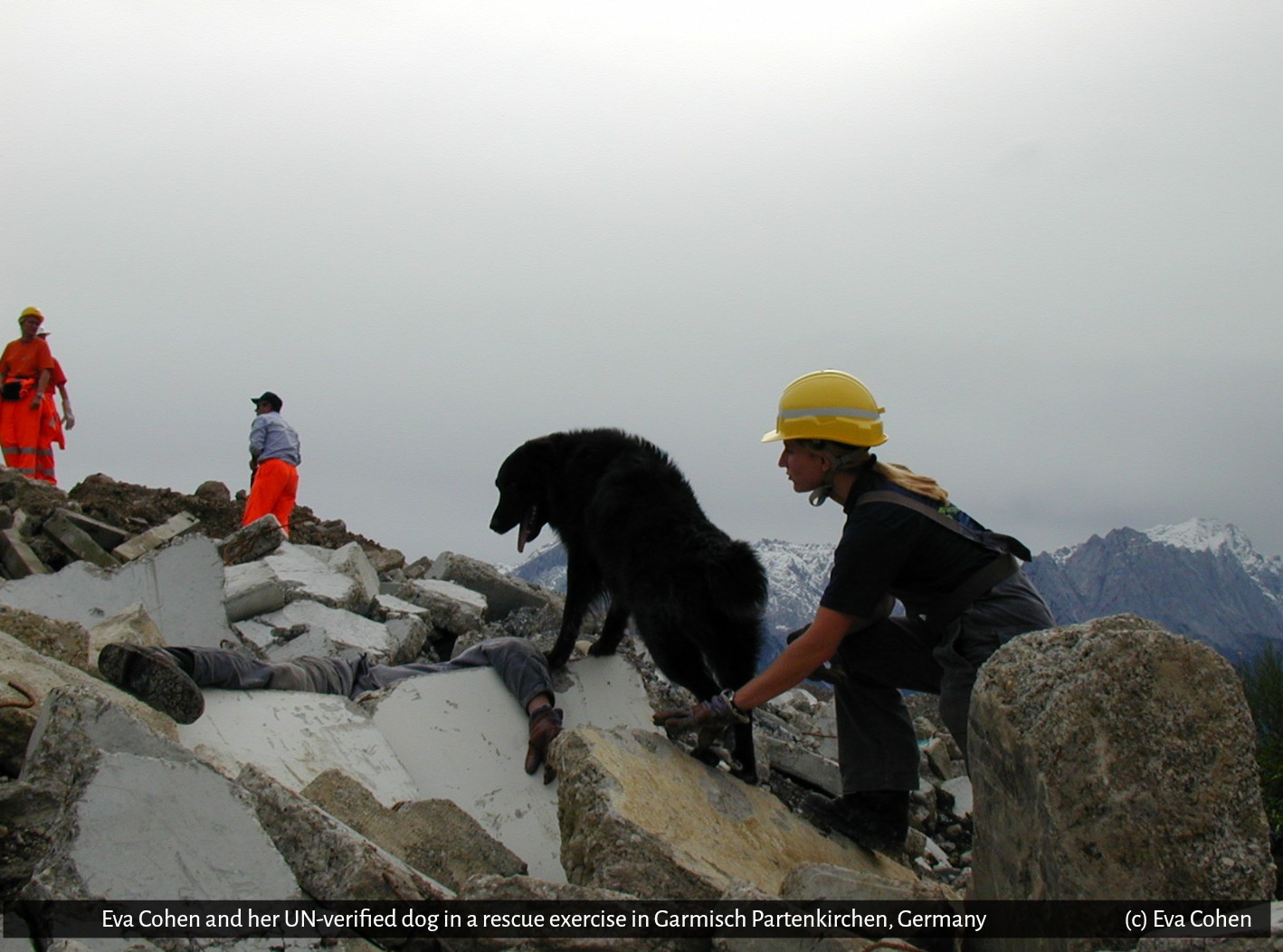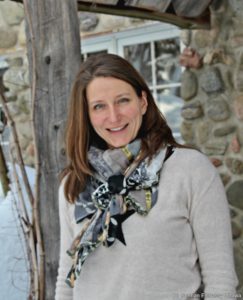
THW helper in Canada
Earthquakes, floods or storms; all these worst-case scenarios have one thing in common: they bring people in distress. What do you have to do in such situations? Who can you ask for help? How could you help others in crisis?
Initiated by the German Federal Ministry of Interior during the post-war period in the 1950s, the German Federal Agency for Technical Relief , Technisches Hilfswerk (THW) is more than a half century old. Its primary function is to always be prepared to help in worst-case scenarios (pro-active structure). 99% of THW members are volunteers, but well supported by the federal state through organisation training and equipment in national and international operations.
14 years ago, Eva Cohen moved from Germany to Québec together with her Canadian husband. Before immigrating, she had been a member of the German civil protection asset called Technisches Hilfswerk (THW). She became an instructor with the THW’s Urban Search and Rescue Dog Unit. After moving across the ocean, she had to adapt to a life in a new country. What could she do in Canada with her education?
“In Canada, there was no second response capacity comparable to Germany’s THW structure,” says Eva Cohen. “I had an UN-certified urban search and rescue dog team here, but no opportunity to work with him. That showed a challenge to me which the Canadian society hadn’t recognized yet.”
The more Eva was thinking and engaging with Canadian stakeholders about the THW’s structure, the more the idea of bringing her proposal to higher authorities grew.
“I started my work eight years ago,” she says. “I talked to many people and presented the value of THW’s structure and work because I’m convinced that the system could work in Canada, too.”
Canadians are friendly and always offering their help. That’s the very first important thing. You need people who say ‘I like to help’.

(c) Eva Cohen
To support Eva’s initiative and motivation, the THW conferred her the title of liaison officer of THW in Canada.
Now a German-Canadian, Eva sees much more potential in this idea to encourage citizen engagement. “In 2016, THW had more than 15,000 national operations. And these weren’t all for large scale disasters. The organization is of value for any local emergency and infrastructure repair, not to mention the various social benefits like community building, youth empowerment and international exchange programs in the network of disaster relief and humanitarian aid.”
Even if Eva’s idea is still a proposal, she is full of motivation and energy and determinded to establish in Canada a similar organization which allows active and meaningful citizen engagement in civil protection. So, who knows, maybe there will be a Canadian one in the very near future…
Updated on March 30, 2017.